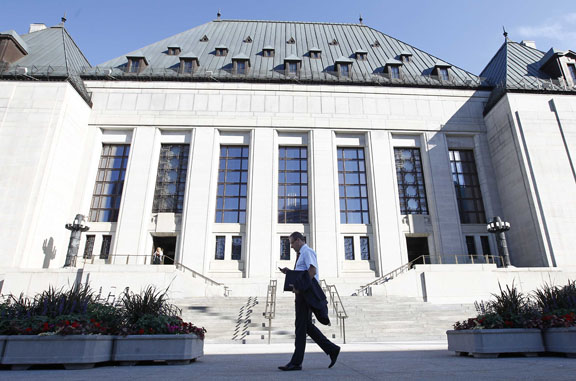The Supreme Court of Canada has ruled that in a multi-issue jury trial, it’s rare for an acquittal to ground issue estoppel.

The issue facing the top court in
R. v. Punko was whether the Crown could seek to prove that the East End Chapter of the Hells Angels is a criminal organization even though the issue had been decided in a previous trial. The Supreme Court ruled it could not.
The cases in question arose from British Columbia, where Randall Potts and John Punko were charged with various offences allegedly committed in connection with the Hells Angels, which was deemed a criminal organization. However, the jury in the B.C. Supreme Court trial acquitted them on all criminal organization charges.
Meanwhile, Potts and Punko were also charged with federal drug-related offences, which the Crown alleged were also committed for the Hells Angels. The accused argued that the Crown should be barred from trying to prove that the Hells Angels is a criminal organization since the jury had already decided on the issue at the previous trial. The judge granted the motions.
The B.C. Court of Appeal then allowed the appeals and ordered a new trial, stating that it can’t be determined that the only rational explanation for their acquittals was that the jury decided that the Hells Angels wasn’t a criminal organization.
In its ruling, the SCC referenced its previous decision in
R. v. Mahalingan: “In light of
Mahalingan, however, the question is whether a finding that the Hells Angels is not a criminal organization is the only logical inference a judge can draw from the jury’s verdict. A review of the relevant portions of the transcript of the jury trial reveals that it is not,” Justice Marie Deschamps wrote on behalf of the bench.
In his charge to the jury, the trial judge said that the Crown had to prove each of the following five elements beyond a reasonable doubt:
“(i) that the accused committed the substantive offence;
(ii) that during the period specified in the count, the Hells Angels was a criminal organization;
(iii) that the accused knew that the characteristics of the Hells Angels were those of a criminal organization during the time period specified in the count;
(iv) that the accused committed the offence for the benefit of, at the direction of, or in association with the Hells Angels; and
(v) that the accused committed the offence with the intent to do so for the benefit of, at the direction of, or in association with the Hells Angels.”
The judge instructed the members of the jury that if they weren’t satisfied with each element beyond a reasonable doubt, they had to deliver a verdict of not guilty.
“In sum, there are at least two logical explanations for the not guilty verdict on each of the criminal organization counts. This means that a judge cannot infer from the jury verdict, as required by Mahalingan, that the jurors necessarily found that the Hells Angels was not a criminal organization,” ruled the Supreme Court.
“In my view, if an issue of unfairness does arise from the positions of the federal and provincial Crowns, it cannot be resolved on the basis of the narrow doctrine of issue estoppel,” Deschamps wrote. “In Canadian criminal law, issue estoppel merely ensures that an accused will not be required to answer questions that have already been determined in his or her favour.”
In her conclusion, Deschamps reiterated the point made in Mahalingan: “that, in a multi-issue jury trial, it will be rare for an acquittal to ground issue estoppel, because such an acquittal will often have more than one possible basis and different jurors may have reached a unanimous verdict by different routes. These appeals are an illustration of that point.”

 The issue facing the top court in R. v. Punko was whether the Crown could seek to prove that the East End Chapter of the Hells Angels is a criminal organization even though the issue had been decided in a previous trial. The Supreme Court ruled it could not.
The issue facing the top court in R. v. Punko was whether the Crown could seek to prove that the East End Chapter of the Hells Angels is a criminal organization even though the issue had been decided in a previous trial. The Supreme Court ruled it could not.